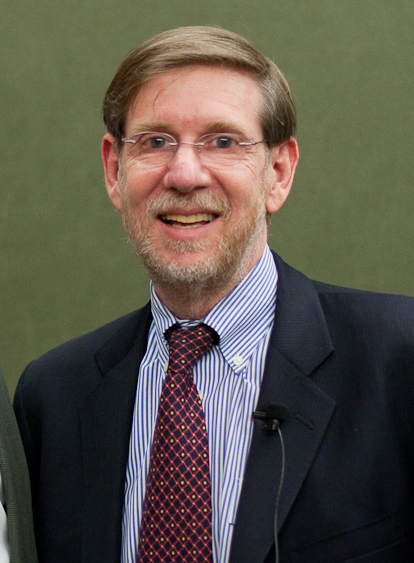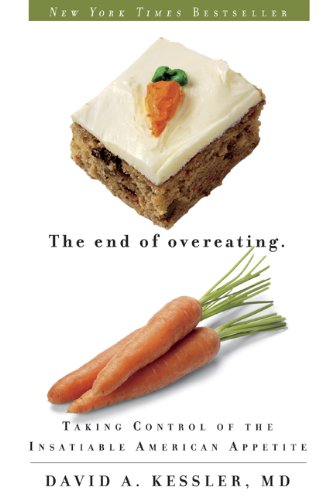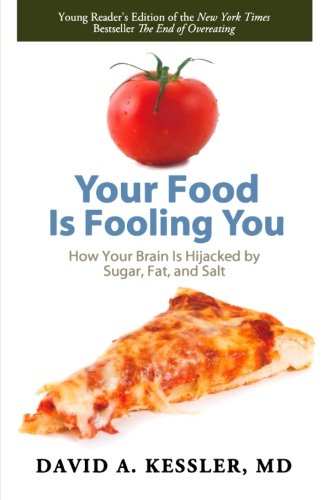Background
David Kessler was born on May 31, 1951, in New York City.



(Dr. David A. Kessler, the dynamic and controversial forme...)
Dr. David A. Kessler, the dynamic and controversial former FDA commissioner known for his crusade against the tobacco industry, is taking on another business that's making Americans sick: the food industry. In The End of Overeating, Dr. Kessler shows us how our brain chemistry has been hijacked by the foods we most love to eat: those that contain stimulating combinations of fat, sugar, and salt. Drawn from the latest brain science as well as interviews with top physicians and food industry insiders, The End of Overeating exposes the food industry's aggressive marketing tactics and reveals shocking facts about how we lost control over food_and what we can do to get it back. For the millions of people struggling with their weight as well as those of us who simply can't seem to eat our favorite foods in moderation, Dr. Kessler's cutting-edge investigation offers valuable insights and practical answers for America's largest-ever public health crisis. There has never been a more thorough, compelling, or in-depth analysis of why we eat the way we do.
http://www.amazon.com/gp/product/1605294578/?tag=2022091-20

( Teen edition of the New York Times bestseller, The End ...)
Teen edition of the New York Times bestseller, The End of Overeating Former commissioner of the US Food and Drug Administration David A. Kessler, M.D., argues forcefully that our brain chemistry is being hijacked by the food we eat: that by consuming stimulating combinations of sugar, fat, and salt, we're conditioning our bodies to crave more sugar, fat, and salt?and consigning ourselves to a vicious cycle of overeating. Adapted from the adult trade bestseller The End of Overeating, Your Food Is Fooling You is concise and direct and delivers the same message, many of the fascinating case studies, and the same advice for breaking bad eating habits in a voice and format that's accessible, positive, and affirming for teenagers. Young people are at most risk of forming bad eating habits?but they're also highly aware of body image and highly responsive to positive messages about health and diet. Your Food Is Fooling You is a readable, authoritative, and entertaining call to action by one of our nation's leading public health figures.
http://www.amazon.com/gp/product/1596438312/?tag=2022091-20
administrator lawyer pediatrician author
David Kessler was born on May 31, 1951, in New York City.
From 1973 to 1979 he went to Harvard Medical School, receiving his doctorate in 1979. In 1977-1978 he was a special student at the Harvard Law School. In 1978 he earned his J. D. (Doctor of Law) degree from the law school of the University of Chicago, which he attended from 1975 to 1977. He was an associate editor of the law review there. New York University's Graduate School of Business Administration, which he attended from 1984 to 1986, awarded him an advanced professional certificate in management. He also studied advanced management in health care at the Yale School of Organization and Management. Specialized in Pediatrics Kessler's medical specialty was pediatrics.
He served as an intern and resident in the Department of Pediatrics of the Johns Hopkins University Hospital in Baltimore. He was also a professor at the Albert Einstein College of Medicine, the Bronx, New York, teaching in the Department of Pediatrics, Epidemiology and Social Medicine. While medical director of the Albert Einstein Hospital he continued practicing his specialty, attending children regularly in the emergency rooms of the city's public hospitals. He was certified by the American Board of Pediatrics and the National Board of Medical Examiners.
In his administrative post at Albert Einstein Hospital he introduced a new emergency evaluation system; reorganized the medical service; opened new facilities for cancer, adult kidney dialysis, and blood donation; and expanded dialysis facilities for children. He introduced a training program for physician assistants that became a model for other teaching hospitals in the state and a quality assurance system for Einstein Hospital.
Kesssler's research included experience at the Children's Hospital Medical Center, Boston, Massachusetts; the Marine Biological Laboratory, Woods Hole, Massachusetts; and the Sloan-Kettering Institute for Cancer Research, New York City.
From 1981 to 1984 Kessler was a special consultant to Senator Orrin G. Hatch (Republican, Utah), then chairman of the United States Senate Labor and Human Relations Committee, on food and drug related questions. He began teaching food and drug law in the Julius Silver Program in Law, Science and Technology at Columbia University's School of Law in New York City in 1986.
His articles on food labeling and the safety of new pharmaceuticals and medical devices appeared in the New England Journal of Medicine, the Journal of the American Medical Association, the Harvard Journal of Legislation, the University of Chicago Law Review, and other professional publications. He edited, with Carl Eisdorfer and Abby Spector, Caring for the Elderly: Reshaping Health Policy. He was chair of a committee advising the secretary of the Department of Health and Human Services on the missions of the department and the Food and Drug Administration (FDA) before assuming the position of commissioner, and he continued as a nonvoting member after his appointment.
The Food and Drug Administration monitors cosmetics, foods, food supplements (such as vitamins), prescription and non-prescription animal and human drugs, and a wide range of other medical, prosthetic, and surgical products used by Americans. In the 1960s the agency had achieved international fame for keeping thalidomide off the market in the United States; in other countries the drug caused a range of birth abnormalities. Experts estimate that about a quarter of all goods bought by American consumers must meet FDA scrutiny.
He was named to head the agency by President George Bush's administration in 1990. Before Kessler's assumption of the FDA commissionership, certification of the efficacy and safety of drugs and vitamin pills had been long and cumbersome. The agency had got entangled in allegations of fraud concerning generic drugs. It had been charged with ignoring dishonest labeling of food products such as orange juice and with the improper approval of potentially dangerous implants in breast surgery.
Keessler moved quickly to restore public and industry confidence in the FDA's missions and operation. He reorganized the bureaucracy, borrowing personnel and practices from private industry. Congress approved Kessler's request to charge pharmaceutical houses $100, 000 to evaluate each new drug and to provide funds to hire additional reviewers. The agency raised standards for the approval of new drugs and medical and surgical appliances. It rewrote and quickly reissued the vast array of rules governing the labeling of foods. Kessler launched a continuing public information campaign to educate the public about the FDA's work.
Keessler also caused controversy as he tackled issues such as tobacco regulation, food labeling, breast implants, and fake fat olestra. Labels detailing the fat, fiber, and caloric contents of foods debuted in May 1994. He banned silicone gel breast implants because of safety concerns. His most difficult challenge was taking on the tobacco industry when he insisted that it be regulated as an addictive drug and called for restrictions in cigarette ads aimed at minors. His crowning achievement came as he left office. That was when the first-ever FDA regulations of tobacco went into effect on Feb. 28, 1997, forbidding merchants from selling tobacco to minors.
On leaving the agency, Kessler wrote in Newsweek, "Both the agency and I have been vilified. I feel very strongly, however, that if you believe in what you're doing, all the name-calling in the world won't stop you. " He became dean of the Yale University School of Medicine on July 1, 1997.
( Teen edition of the New York Times bestseller, The End ...)
(Dr. David A. Kessler, the dynamic and controversial forme...)
Kessler was married to Paulette Steinberg Kessler, an attorney. They had two children, Elise and Benjamin.
